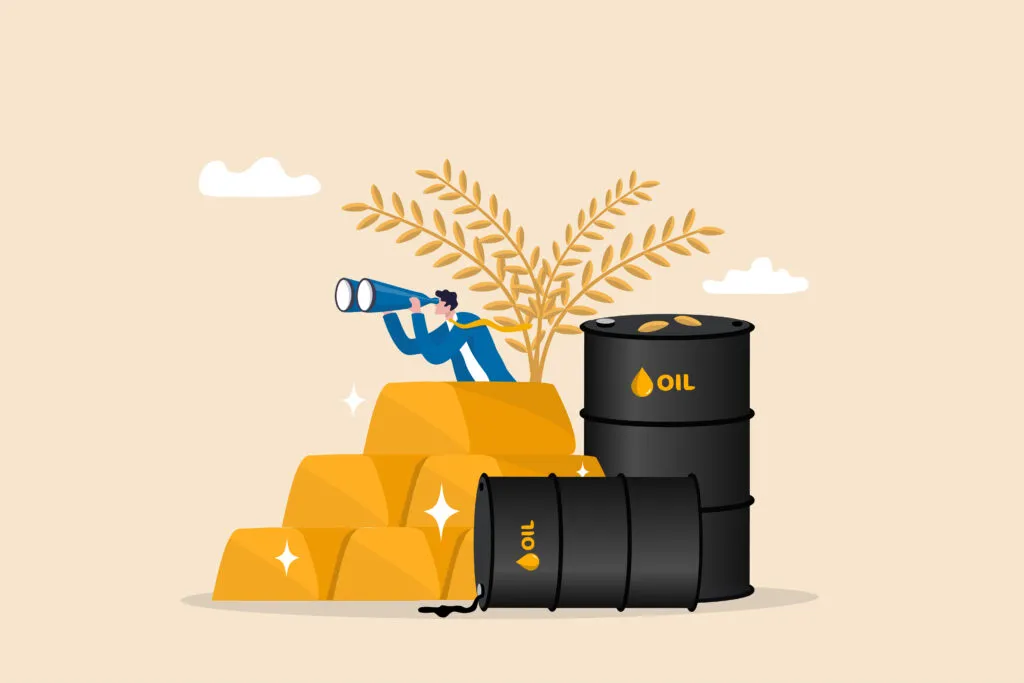Commodities have been at the core of global trade for centuries. From the gold rushes of the 19th century to the modern-day futures markets, commodities play a critical role in economies worldwide. But what exactly are commodities, and how do you trade them? In this article, we’ll take a deep dive into the world of commodities—what they are, the types of commodities available for trading, and how you can start trading them, including trading commodities Canada.
What Are Commodities?
In financial terms, a commodity is a basic good or raw material that is interchangeable with other goods of the same type. These can include natural resources like oil and gold, agricultural products like wheat and coffee, or metals such as silver and copper. Commodities are generally standardized, meaning that one unit of the commodity is essentially the same as another, regardless of where or by whom it is produced.
The reason commodities are traded is simple: they are essential to the global economy. Countries rely on commodities for energy, food production, and manufacturing, making them integral to economic stability. As such, their prices are closely watched by governments, businesses, and traders alike.
Commodities are often categorized into two broad types:
- Hard Commodities: These are natural resources that are extracted or mined. Hard commodities include metals like gold, silver, and copper, as well as energy products like oil and natural gas.
- Soft Commodities: These are agricultural products or livestock. Soft commodities include things like wheat, corn, sugar, coffee, and cotton.
How Do Commodities Trade?
Commodities are typically traded through futures contracts. A futures contract is an agreement to buy or sell a specific quantity of a commodity at a predetermined price and time in the future. These contracts are standardized and traded on commodities exchanges like the Chicago Mercantile Exchange (CME) or the London Metal Exchange (LME).
Here’s how futures contracts work:
- Buying a Futures Contract: If you believe the price of a commodity will rise in the future, you buy a futures contract. By purchasing this contract, you lock in the current price, and when the contract expires, you either take delivery of the commodity or sell it at the market price.
- Selling a Futures Contract: If you think the price of a commodity will fall, you can sell a futures contract. In this case, you aim to buy back the contract at a lower price in the future to make a profit.
It’s important to note that most commodity traders never actually take physical delivery of the commodity. Instead, they settle their positions before the contract expiration date, either by closing the position or rolling over to another contract.
Types of Commodities You Can Trade
There are a wide variety of commodities that can be traded on global markets. Let’s take a look at the major types of commodities you can trade:
1. Energy Commodities
Energy commodities include products like crude oil, natural gas, and heating oil. These are some of the most actively traded commodities in the world, given their vital role in global industries. For example, oil prices have a significant impact on the global economy, influencing everything from the cost of goods to geopolitical stability. Energy commodities are traded primarily on the New York Mercantile Exchange (NYMEX).
2. Agricultural Commodities
Agricultural commodities cover a wide range of products, from grains like wheat, corn, and rice to soft commodities like coffee, cocoa, sugar, and cotton. The agricultural sector is especially influenced by seasonal weather patterns, and these commodities can be highly volatile. In fact, many traders focus on agricultural commodities because they offer numerous opportunities for profit based on seasonal trends and global supply and demand. These commodities are often traded on exchanges such as the Chicago Board of Trade (CBOT).
3. Precious Metals
Precious metals like gold, silver, and platinum have long been seen as safe-haven assets during times of economic uncertainty. Gold, in particular, is considered a store of value and is highly sensitive to inflation and market volatility. Traders often use precious metals as a hedge against stock market declines or inflation, making them a popular choice for trading. Precious metals are usually traded on exchanges such as the COMEX and the London Metal Exchange.
4. Industrial Metals
Industrial metals like copper, aluminum, and nickel are critical to global industries, especially manufacturing and construction. These metals are essential for creating goods like electronics, buildings, and vehicles. As such, industrial metals can experience price fluctuations based on supply chain disruptions, economic growth, and industrial demand. They are typically traded on exchanges like the London Metal Exchange (LME).
How to Trade Commodities
Trading commodities may sound complex, but it is relatively straightforward once you understand the key mechanisms. Here are the main ways to trade commodities:
1. Futures Contracts
As mentioned, the most common way to trade commodities is through futures contracts. Futures allow traders to speculate on the price movement of a commodity without ever owning it physically. When you trade futures, you’re agreeing to buy or sell the commodity at a set price and time in the future. Futures contracts are leveraged instruments, meaning you only need to put up a fraction of the contract’s total value as margin. However, leverage can amplify both profits and losses, so careful risk management is essential.
2. Commodity ETFs (Exchange-Traded Funds)
For those who prefer not to trade futures contracts, Commodity ETFs are a great alternative. These funds track the price of a commodity (or a basket of commodities) and can be traded on stock exchanges just like stocks. Some ETFs directly hold the underlying commodity, while others invest in commodity futures contracts. ETFs provide a more accessible way to gain exposure to commodities without the complexities of futures trading.
3. CFDs (Contracts for Difference)
CFDs, or Contracts for Difference, are another popular way to trade commodities. A CFD is a contract between a buyer and a seller to exchange the difference in the value of an asset between the time the contract is opened and when it is closed. CFDs allow traders to speculate on price movements without owning the underlying asset. Trading commodities through CFDs is a popular method for traders looking for flexibility and access to leverage. If you’re interested in trading commodities Canada, CFDs provide an excellent way to engage in global markets with lower capital outlay.
4. Spot Trading
Spot trading involves buying or selling commodities for immediate delivery. This type of trading is common for precious metals, oil, and agricultural products. Whenever Spot contracts are typically settled within two business days, and they are often used by businesses that need to lock in prices for immediate delivery of commodities.
Why Trade Commodities?
There are several reasons why traders choose to engage in the commodities market. One of the primary reasons is diversification. Commodities often have a low correlation with other asset classes like stocks and bonds, meaning they can serve as a hedge against volatility in the equity markets. Furthermore, commodities are highly sensitive to supply and demand dynamics, weather conditions, and geopolitical events, making them an exciting market for active traders.
Another reason traders turn to commodities is their ability to capitalize on both rising and falling prices. Through the use of leveraged instruments like futures and CFDs, traders can profit in both bull and bear markets, making commodities a highly dynamic asset class for short-term trading.
Trading Commodities in Canada
If you are based in Canada or interested in trading commodities Canada, the process is quite similar to trading them anywhere else in the world. You can access global commodities markets through a variety of online brokers that offer trading platforms with access to commodity futures, CFDs, and ETFs. Canadian traders are subject to the same market conditions as their global counterparts, but they may also need to consider factors such as exchange rates, tax regulations, and brokerage fees when making their trades.
It is important for Canadian traders to choose a reliable and regulated broker that provides access to the commodities markets they are interested in. Additionally, staying informed about market conditions, including global supply and demand factors, weather patterns, and political events, is essential for successful trading.
Conclusion
Commodities offer an exciting and dynamic market for traders looking to diversify their portfolios, hedge against risk, or profit from market movements. Whether you’re interested in trading energy products, agricultural goods, precious metals, or industrial metals. There are numerous ways to trade commodities—through futures contracts, ETFs, CFDs, and spot trading.
For Canadian traders, trading commodities Canada opens up access to the global commodities market, where you can take advantage of price fluctuations in a wide range of assets. Whenever As with any form of trading, success in the commodities market requires a solid understanding of market forces, careful risk management, and the right tools and platforms to execute your trades effectively.
By doing your research and staying informed, you can harness the potential of the commodities market to add diversity and profitability to your trading strategy.


